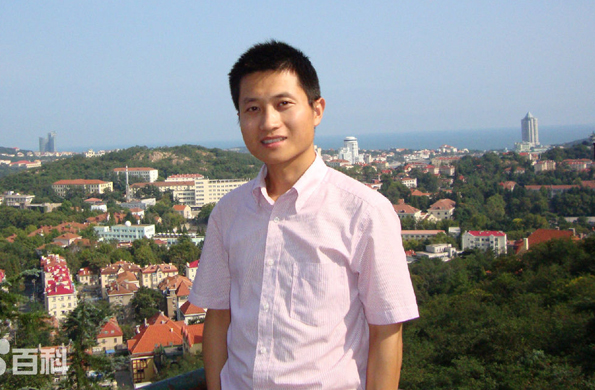Promoting balanced environmental governance
 Since the 18th CPC National Congress, China has invested unprecedented efforts in developing ecological civilization. Against this backdrop, the nation has made historical achievements in environmental protection. Nevertheless, the situation of ecological damage and environmental pollution remains severe, and the mission of environmental restoration and improving ecological quality has a long way to go.
Since the 18th CPC National Congress, China has invested unprecedented efforts in developing ecological civilization. Against this backdrop, the nation has made historical achievements in environmental protection. Nevertheless, the situation of ecological damage and environmental pollution remains severe, and the mission of environmental restoration and improving ecological quality has a long way to go. Environmental governance faces both the problems of “insufficiency” and “imbalance.” The imbalance of environmental governance is a structural problem. People from suburban, rural and underdeveloped areas have a strong demand for fresh air, clean water and environmental infrastructures, but these areas face the problem of insufficient capability and resources.
Furthermore, shifting polluting industries and backward production capacities from developed areas to these underdeveloped areas aggravates this predicament. Therefore, this regional imbalance in environmental governance should be treated seriously with comprehensive policies.
Developed areas have put a large amount of resources into developing infrastructures such as sewage pipe networks, waste processing facilities and greening. In contrast to this, underdeveloped areas need to improve their ability in and increase their resources for improving environmental conditions. This can be done in three ways:
First, the government should pay attention to the environmental demands of the public in underdeveloped areas for fresh air and clean water. Relevant government departments should make policies and provide more fiscal subsidies and financial support to underdeveloped areas. Meanwhile, resources for environmental governance should be allocated in a more reasonable way.
Second, the government should make full use of the market mechanism. In recent years, China has made many policies for the building of livable environments in rural areas and the beautiful countryside. However, it should be noted that underdeveloped areas generally face the problem of financial gap. Therefore, the government should increase its ability to innovate with market mechanisms that produce more resources for environmental protection. The government should also adopt more diversified ways of seeking financing, using modes such as PPP (public-private-partnerships)and BOT (build-operate-transfer).
Last, the government should let more third parties join in environmental protection. In order to overcome underdeveloped areas’ insufficient capability to protect the local environment, third-party mechanisms should be integrated. To be more specific, environmental services companies with strong technological abilities and high operation capacities should be introduced.
Industries kicked out of developed areas are often welcomed in underdeveloped areas. Industries with high energy consumption and heavy pollution shift from the east to the west part of China (from eastern coastal areas to central and western China), from cities to rural areas, and from southern areas to northern areas (for example, from Southern Jiangsu Province to northern Jiangsu Province). The shifting of pollution is both an environmental and social problem that needs to be taken seriously. It can be better addressed in the following ways:
First, the government should crack down on illegal activities related to pollution with stronger determination. The shifting of polluting industries to neighboring areas is not just about gray areas in the pollution governance of the industrial chain, but also related to the unequal social structure. Therefore, the government should take strict legal action against crimes related to the environment. The government should strengthen environmental inspection and hold those who shift pollution to other areas responsible for their illegal activities. In addition, the prosecuting agencies should initiate prosecutions against those who violate the public environmental interest with activities such as dumping hazardous waste.
Second, the government should strengthen supervision of environment-related activities. It should implement strict access system related to the qualification of certain environmental requirements. Also, a joint mechanism should be established among departments concerning environmental protection, water resource management, transportation and rural development, to protect the environment. In addition, social forces should be involved to provide the social foundation for the shifting of polluting industries to undeveloped areas. For example, villages in Jiangyan District of Taizhou City in Jiangsu Province appoint commissioners to deal with local environmental protection.
The purpose of environmental governance is to establish a coexistent and mutually beneficial relationship between economic development and environmental protection, rather than simply shut down factories. Therefore, environmental problems should be addressed at their sources. It is a crucial method for scientifically addressing the pollution problem and preventing pollution shifting.
It is important for all local governments to enhance their self-awareness of ecological benefits. Local protectionism and shifting pollution to other areas won’t work, and strengthening environmental protection will bring practical benefits to the sustainable development of local economies and society. Companies should also be aware that reducing pollution and seeking industrial transformation will bring actual benefits.
What’s more, it is important to remember that eliminating pollution does not mean the elimination of companies that produce pollution. Such actions as simply shutting down polluting companies should be avoided. It is important to help those companies to reduce their pollution so that they can operate without breaching regulations and laws regarding environmental protection.
Meanwhile, local governments should provide policies to support the sustainable development of the companies. By doing so, the sustainable development of the developed areas can be achieved, and the pollution problems can be eliminated rather than allowing them to develop again in other areas.
Chen Tao is deputy director of the Research Center for Environment and Society at Hohai University.
edited by CHEN ALONG
